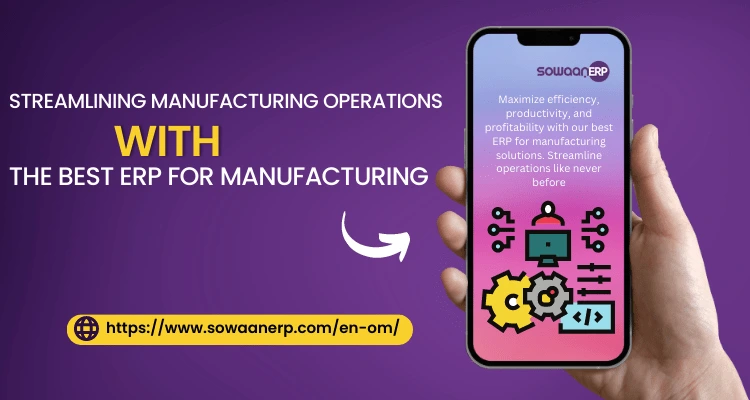
In the competitive commercial world of today, planning and controlling production well is essential to making the best use of resources, meeting customer needs, and making money. Integration of the best ERP for manufacturing systems with production planning and control systems is becoming increasingly important to reach these goals. This article talks about the benefits of this integration, including how it makes manufacturing operations more efficient and improves the general performance of a business.
Getting on the same page
Filling in the Gaps In manufacturing, different teams need to be on the same page so that everything runs smoothly. Integrating the best ERP for manufacturing with production planning and control tools makes it easier for different stakeholders to talk to each other and work together. It makes it possible for data to move quickly between departments, ensuring that correct information is shared and that mistakes in communication are kept to a minimum. When everyone speaks the same language, it makes it easier to streamline industrial processes, which makes them more efficient.
Centralizing data
A Recipe for Success One of the most essential benefits of combining manufacturing ERP systems solutions in Oman with systems for production planning and control is that data can be put in one place. Companies get a complete picture of their operations by putting data from different sources, like sales, inventory, and production, onto a single, unified platform. This lets people make better decisions based on correct and up-to-date knowledge. “Knowledge is power,” as the saying goes, and a centralized data repository gives producers the power to make smart decisions, predict demand, and react quickly to changes in the market.
Optimizing resource allocation
Doing More with Less In manufacturing, it’s important to make the best use of resources so that costs are kept to a minimum and efficiency is increased. Integration of ERP with production planning and control tools lets you see what resources, like raw materials, labor, and equipment, are available. This makes it easier for businesses to use their resources well and makes sure that each step of the production process has enough resources. By using the right resources at the right time, ERP in the manufacturing industry can streamline processes and avoid bottlenecks, which increases overall productivity.
Automating workflows
Like a Well-Greased Machine when Process manufacturing ERP and production planning and control tools work together, workflows can be done automatically. By getting rid of manual processes and replacing them with automated ones, companies can cut down on mistakes made by people and make their operations run more smoothly. By automating the scheduling of production orders based on real-time data, for example, manufacturers can make sure that their resources are used in the best way possible, that production deadlines are met, and that customer happiness is maintained.
Real-time monitoring
Keep an ear to the ground Real-time tracking is essential to keep things running smoothly in the fast-paced business world of today. Key performance indicators (KPIs) can be tracked and monitored in real-time when ERP is integrated with production planning and control tools. Manufacturers can keep an eye on how production is going, keep track of how much material they have, and find any possible delays or bottlenecks. This method lets people step in at the right time to make sure production stays on track and business goals are met.
Conclusion
When ERP is combined with production planning and control systems, manufacturing processes become more efficient, cost-effective, and in tune with market needs. Businesses can be more agile, productive, and profitable by bridging the gap between departments, centralizing data, optimizing resource allocation, automating processes, and allowing real-time monitoring. As makers try to stay ahead in a competitive market, integrating ERP with production planning and control systems becomes a crucial success factor that helps them run like a well-oiled machine and drive long-term growth.
